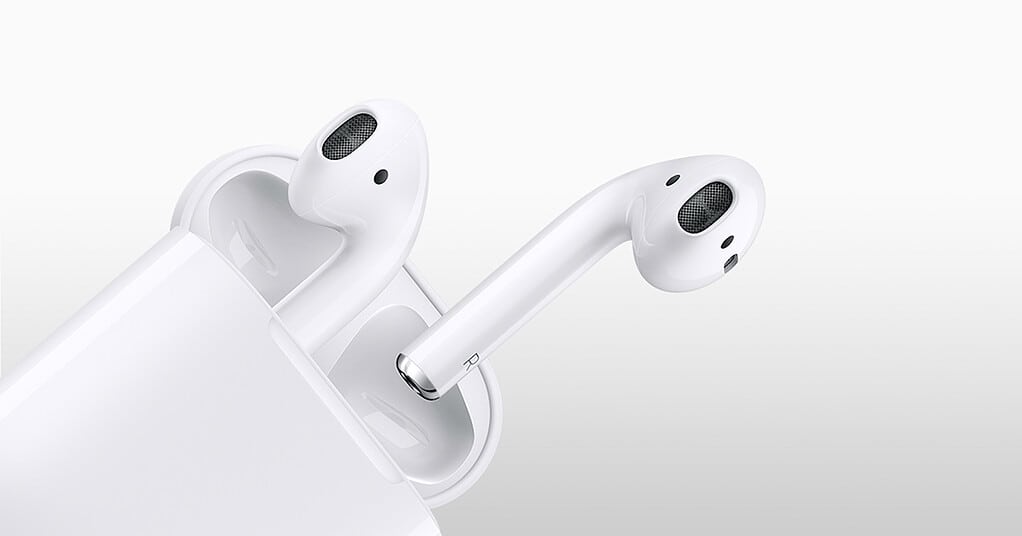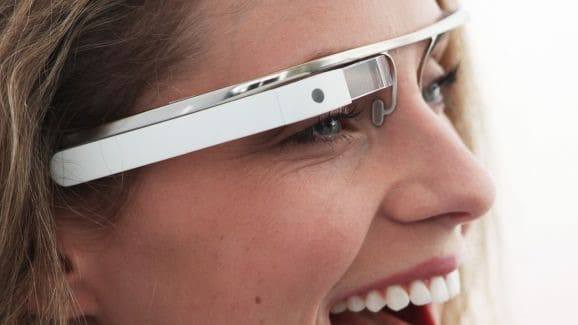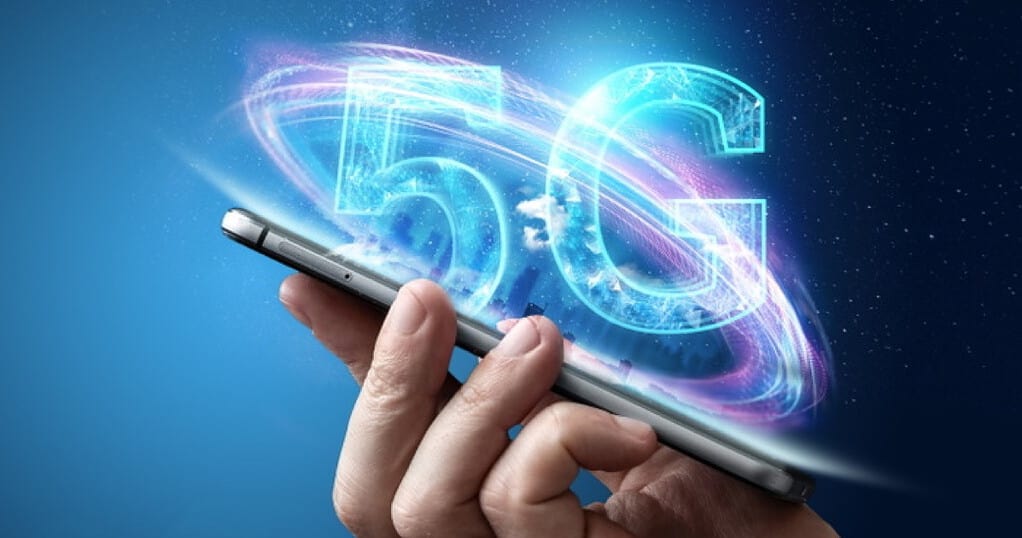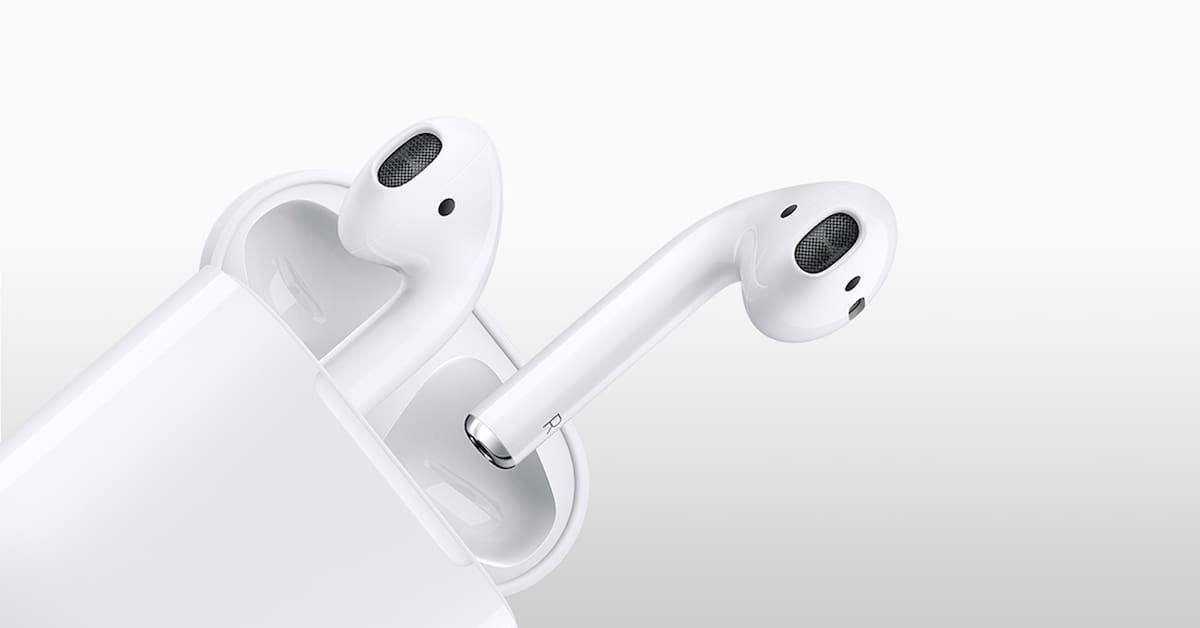AirPods got off to a slow start thanks to supply constraints. Nowadays, they are plentiful and creating an unintended social issue.

The Particle Debris article of the week is from BuzzFeed:
• Author Alex Kantrowitz explores how people respond to one another when one of them is wearing AirPods in public. “Apple’s popular earbuds can make things awkward when someone refuses to ever take them out — or forgets they’re there.”
Because AirPods have come to be a status symbol, users are reluctant to remove them. And that, in turn, affects people around them.
Are they listening to me? Are they listening to music? A podcast? Just hanging? It’s tough to know.
The social reaction here is similar to but not the same as the ill-fated Google Glass. In that case, bystanders were angered by the fact that their activities in, say, a bar could be secretly recorded by the geek know-it-all. In the case of AirPods, bystanders have no social cues as to when the wearer is actually paying attention to them. Imagine wearing them on a date, and you’ll see what I mean.

• This AirPod effect is accentuated by the ongoing social custom that an incoming call on an iPhone is always more important than the person the user is conversing with in person and must be attended to. The human in front of the iPhone user is, so to speak, rudely hung up on.
I doubt if Apple foresaw this. I surmise AirPods were envisioned for use in private, and for only a few hours at a time, and not as a way to showcase, for the whole day, one’s tech acumen in public. (Or robotic aspirations.) But both products suggest that Apple and Google were enchanted with the technology and, unsure of the social consequences, elected to forge ahead and let the details sort theselves out.
Speaking of long-term usage, the subject has come up of AirPod safety. Apparently, one misleading news story got blown out of proportion and context and claimed there could be health hazards associated with this RF device so close to the ears and brain. This has not been shown to be the case, and the best, most sober exploration I’ve seen is this: “Did 250 Scientists Warn that Apple Airpods Pose a Cancer Risk?” The answer, of course, is “no.”
But the real issue is this. Developers have an initial technical vision for a device. Then unexpected social forces cause customers to use the device in unanticipated ways. The social and health consequences are unclear and hard to pin down. The developer keeps selling the device. Copycats jump on the bandwagon. Customers march on.
Until there’s a backlash that takes the product back out of favor. People who used Google Glass came to be known as glassholes. Make up your own term for overly obsessive AirPod users who wear them all day in public.
More Debris
• There’s a tendency for some journalists to criticize Apple for not being a technology leader. But being on the bleeding edge has its perils. See: “Samsung just proved why Apple’s always late.” It takes time and patience to refine great products, time that Apple’s competitors don’t have. So they rush in, fooling themselves with unjustified optimism.
• Here’s an interesting report. “Apple to Overhaul Find My iPhone, Launch Tracking Hardware.”
The application is apparently designed to be able to track all the devices in your network in one place, with the option to see the location of your friends and family in real time, as well.
The new app also gives additional functionality to location sharing, including the ability to create alerts that notify you if someone leaves or arrives at a location, or to designate “safe zones” where alerts are shut off.
• Now that Apple and Qualcomm have settled out of court, it’s time to assess the impact of the agreement. At Bloomberg, Mark Gurman and Ian King do just that. “Apple’s Settlement With Qualcomm Starts the Clock on Its Own 5G Modem.”
Modems require more layers of engineering than some other types of processors. The modem connects phones to cellular networks and lets devices browse the web, download apps and make phone calls. Getting this to operate smoothly everywhere in the world is a complex task requiring broad industry know-how that’s hard to acquire.

It’ll be interesting to see how Apple’s own 5G chip efforts pan out (or even endure), while the company kowtows to Qualcomm in the short term.
• Finally, if you thought that the use of facial recognition could be regulated or managed well in a civil liberties context, you may want to reconsider. Here’s what the government has in store for us next. “US facial recognition will cover 97 percent of departing airline passengers within four years.”
________________________________
Particle Debris is a generally a mix of John Martellaro’s observations and opinions about a standout event or article(s) of the week followed by a discussion of articles that didn’t make the TMO headlines, the technical news debris. The column is published most every Friday except for holiday weeks.

The first person I saw with Airpods in reminded me of a niece that had tubes put in her ears as a child – awkward looking. I still wonder, for those with bluetooth headsets, if they’re are speaking to me or to themselves, until I get a gist of the conversation.
Are AirPods that different than the Bluetooth headsets everyone used to stick in their ears?
I mean, it should be evident to others encountering anyone wearing any sort of headphones or other ear apparatus that that person’s priorities lie elsewhere, and should be treated as such.
Or reading a book? Of course very few people read while walking like many do while wearing headphones or earbuds of any sort.
Actually, with AirPods people are more likely to know that you are paying attention to them when they talk to you. Because people know by now that if you pull one of the AirPods out of your ears, the music (or whatever you are listening to) stops playing. But with other BT wireless ear buds, if you pull one ear bud out, your music still plays in the other earbud.
AirPod Social Awkwardness is just a technological update to Literary Awkwardness. With the advent of moveable type many people dropped out of polite society and became narcissistic jerks more concerned with the written word than polite conversations about the weather. They’d be so focused on their “stories” that they would not be aware if you entered a room, or left, or reentered with a tray of nachos. If they were reading when you started a conversation you could never be sure if they were still thinking about what they were reading or if they were giving you their full attention and appreciation for the words you were saying. This is why it should be considered rude to have a book on a table or shelf when in the company of other people, they are too distracting. There have even been reports of people shutting themselves inside their homes at night for “Reading and Relaxing” (new slang term for debauchery, or so I am told) instead of socializing at the local tavern like normal people are want to do.
Technology destroys society, it’s as simple as that.
Jeez this happened to em yesterday with one of my students (one of my better ones as it happens) but sa complete Apple girl, iPhone, Macbook and Apple Watch. On break during lecture I saw her on break and wanted to inform her of an admin issue but she had these damn Airpods in and as I was taking to her she looked at me with a blank look until I motioned for her to take them out. She took one I passed my message and it was fine…sigh. I mean I had a Walkman and have Beats X and all but I try to take notice when folks are talking to me…
I’ve been caught in a couple of embarrassing situations when I was not sure if someone was talking to me with things on or in their ears. Now I have a rule: AirPods/earbuds/headphones mean I don’t want to be disturbed. You want to talk to me, take them out.
I’ve said before, but I’ll say it again here; The new app that combines Find My Phone and Find My Friends needs to be called Friend or Pho(ne).
Ah, one more reason for me to avoid flying.